
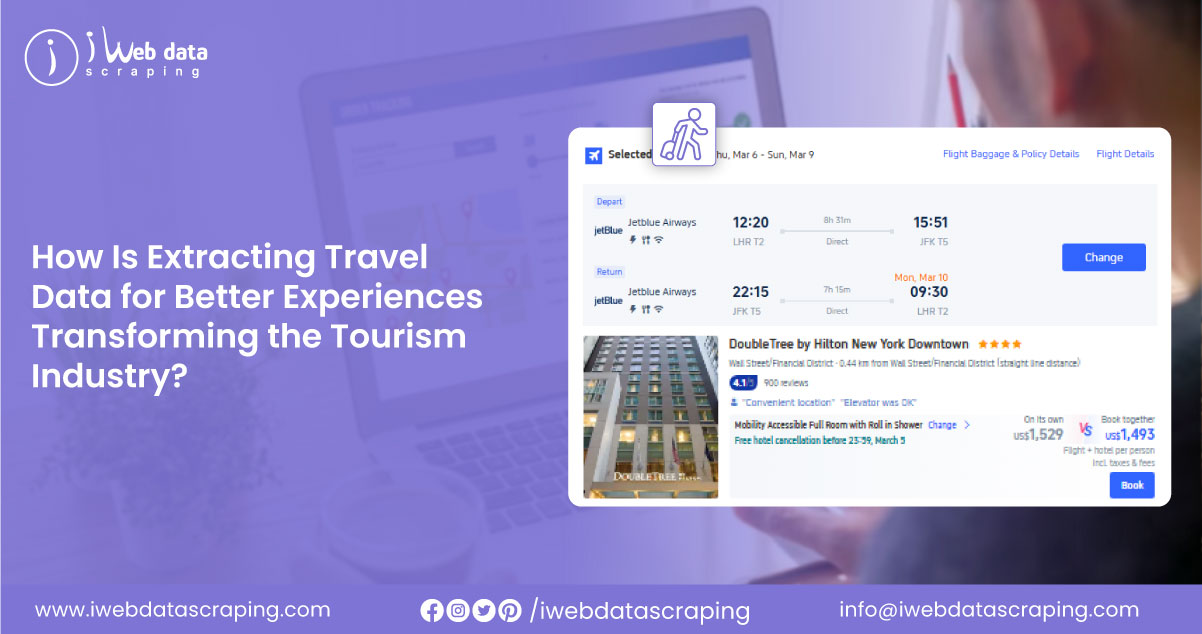
Technology has transformed the tourism industry, enhancing convenience, personalization, and efficiency. Integrating artificial intelligence (AI), big data, and automation has revolutionized how travelers plan and experience their journeys. From booking flights to discovering new destinations, digital advancements provide seamless and hassle-free travel experiences. AI-driven chatbots offer instant customer support, while predictive analytics help travelers find the best deals. Additionally, Extracting Travel Data for Better Experiences enables businesses to understand customer preferences and optimize services accordingly. Automation in airport security, smart hotel check-ins, and real-time navigation further streamline travel. As technology evolves, the travel industry becomes more adaptive, ensuring travelers enjoy smoother, more personalized adventures. Whether through AI-powered recommendations, data-driven insights, or automated services, innovation is reshaping tourism, making every step of the journey more enjoyable and efficient. The future of travel is digital, offering endless possibilities for enhanced experiences.
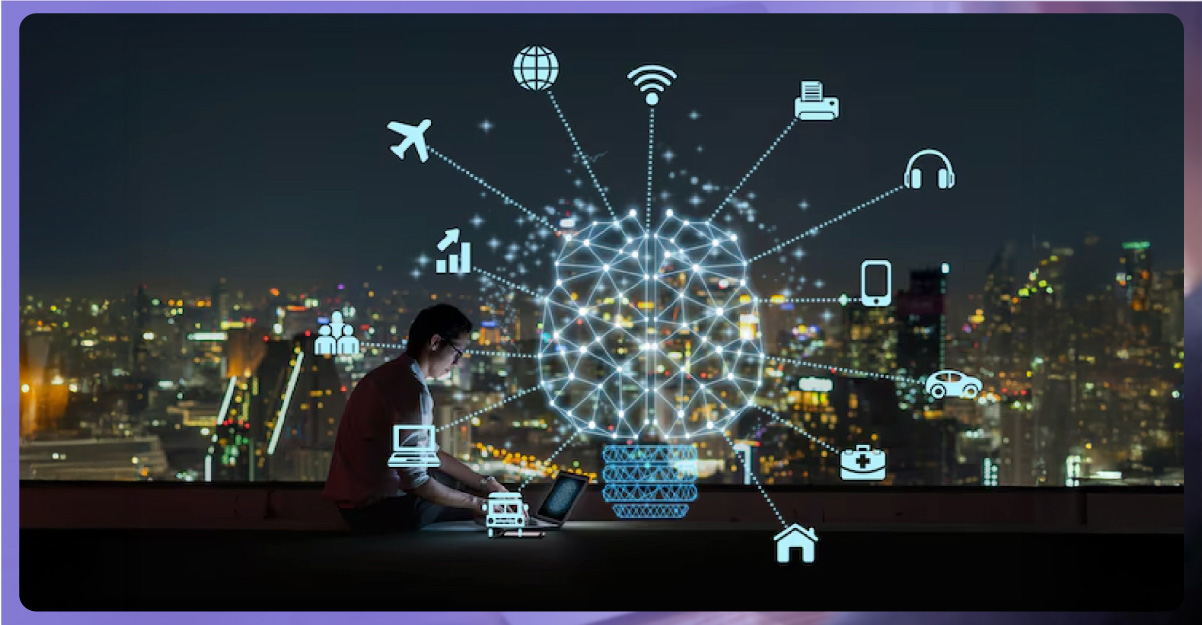
Artificial intelligence and big data analytics have significantly improved travel planning and management. Travel agencies, hotels, and airlines rely on these technologies to predict customer preferences, analyze travel patterns, and offer customized recommendations. By implementing Hotel Price Scraping , travelers can access real-time pricing insights to find the best deals on accommodations. This benefits tourists and helps businesses optimize their pricing strategies based on demand and competition.
Big data analytics further enhances travel experiences by analyzing customer reviews, weather conditions, and seasonal demand. By utilizing Flight Data Extraction, airlines can monitor pricing trends, predict demand fluctuations, and ensure travelers get the best ticket prices. This has made air travel more affordable and convenient, with dynamic pricing models benefiting airlines and passengers.
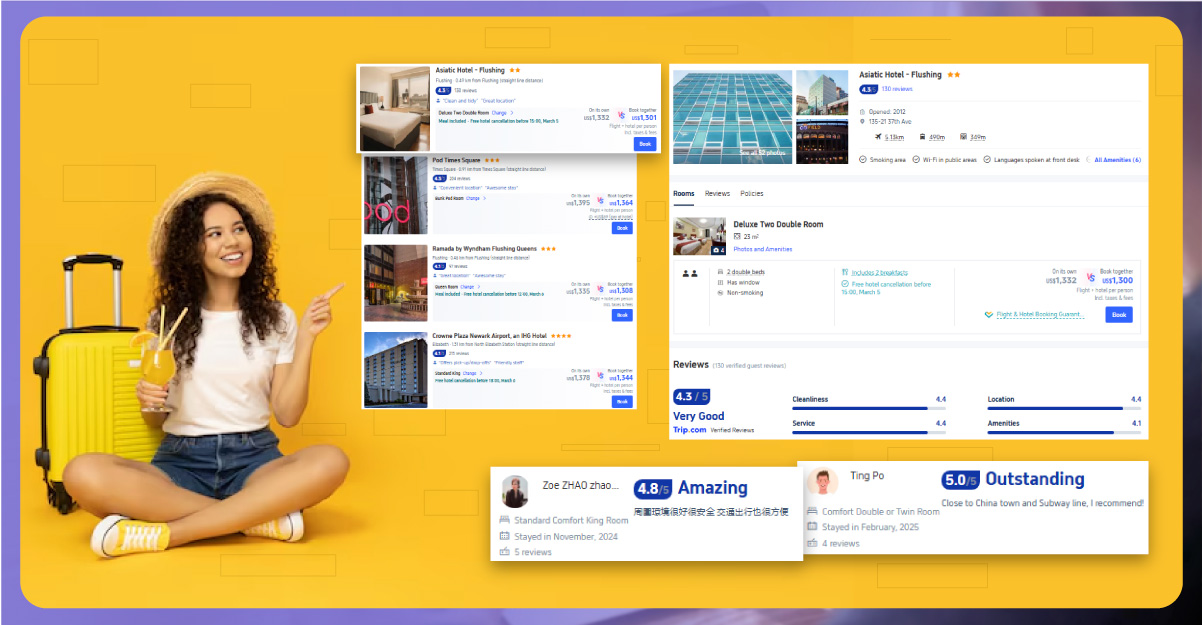
Gone are the days of generic travel packages. Today’s travelers expect tailored experiences that match their unique preferences. By Extracting Tourist Trends, travel companies can understand traveler behavior and provide personalized recommendations based on historical data, search patterns, and user-generated content. This means tourists receive suggestions for destinations, hotels, and activities that align with their interests, making their trips more fulfilling and enjoyable.
Machine learning algorithms refine these recommendations by considering budget, past travel history, and personal preferences. For instance, an AI-driven travel platform can recommend a tropical beach destination to users who frequently search for warm-weather vacations. At the same time, another traveler who enjoys adventure tourism may receive suggestions for mountain treks and hiking tours.
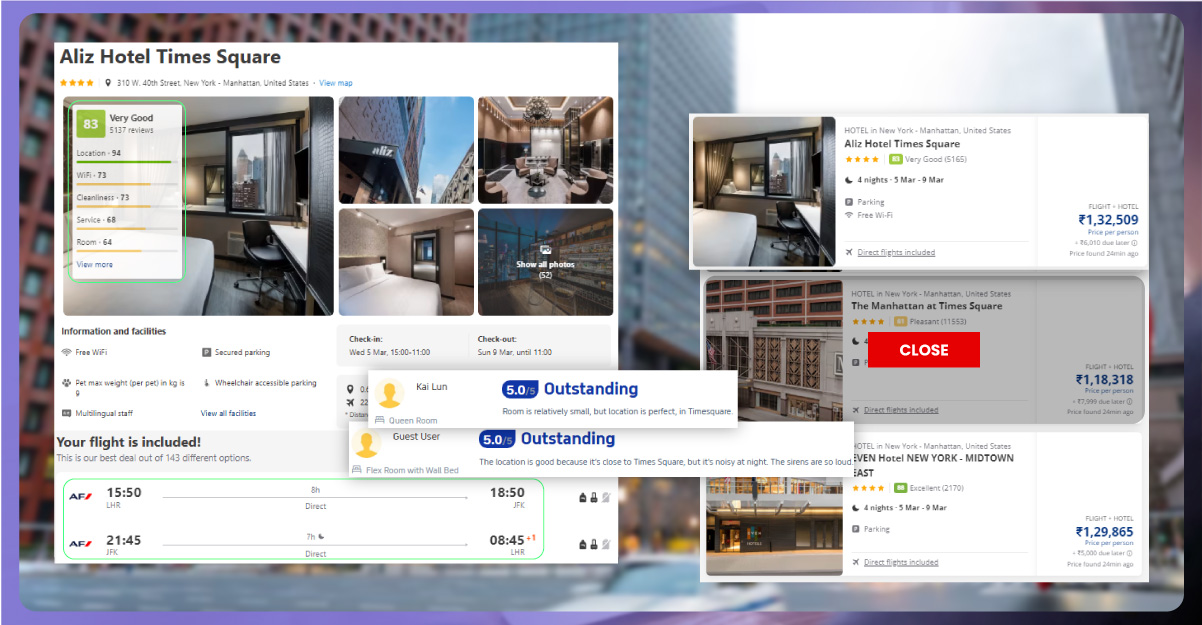
Data scraping has become a game-changer in the travel industry, enabling businesses to collect, analyze, and leverage vast amounts of travel-related data for better decision-making and customer service. Scrape Travel Deals & Insights to allow travelers access to comprehensive information on discounts, promotional offers, and package deals from multiple airlines, hotels, and travel agencies. By extracting real-time data, users can compare prices, identify the best deals, and plan their trips more efficiently, maximizing their savings and enhancing their overall travel experiences.
Additionally, Travel Data Scraping Services provides online travel agencies, booking platforms, and price comparison websites with access to aggregated data from various sources, ensuring accurate and up-to-date insights on hotel availability, flight schedules, fare fluctuations, and seasonal pricing trends. This transparency empowers consumers to make informed choices, reducing the risk of overpaying or encountering last-minute surprises. As the travel industry evolves, data scraping remains critical in optimizing services, enhancing user experiences, and driving competitive advantage for businesses in a highly dynamic market.
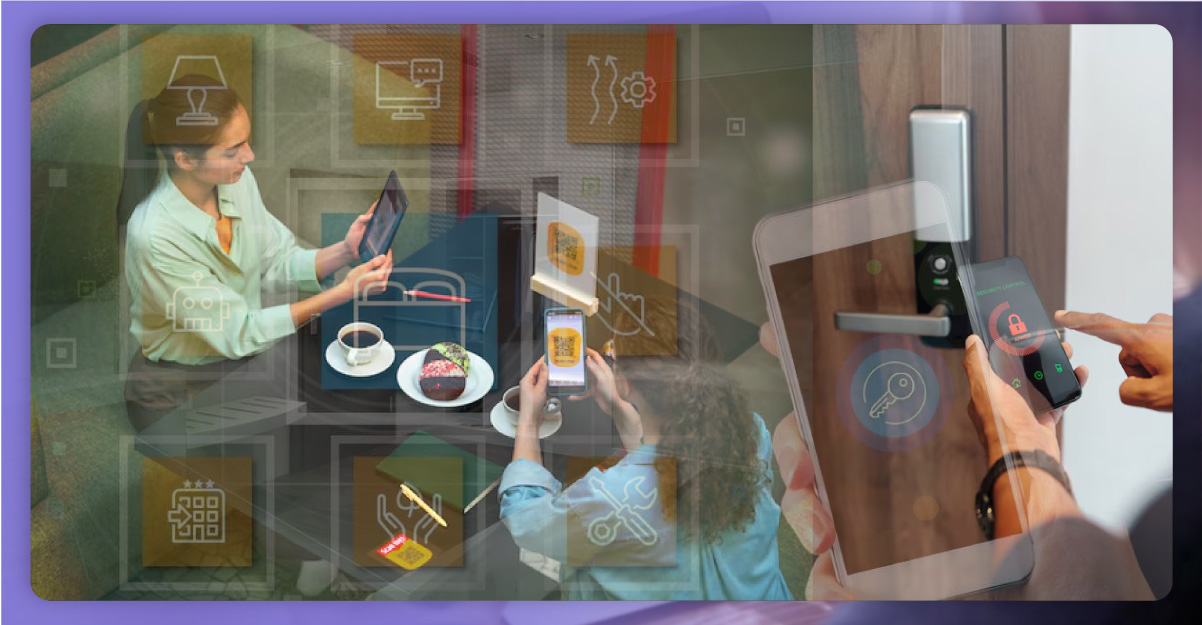
The hospitality sector has significantly transformed with the increasing adoption of innovative technology. Smart hotels leverage Internet of Things (IoT) devices, automation, and AI to enhance guest experiences. Mobile check-ins, keyless room access, and voice-controlled room settings are just a few innovations becoming commonplace in modern hotels. Utilizing Travel and Tourism Datasets allows hoteliers to anticipate guest needs and deliver personalized services such as room upgrades, special discounts, and customized dining options.
Contactless travel has also gained traction, especially after the COVID-19 pandemic. Many airports, airlines, and hotels have implemented biometric authentication, digital boarding passes, and mobile payments to reduce physical interactions and streamline travel processes. This ensures a safer, more efficient experience for travelers while maintaining high levels of convenience and comfort.
Harness the power of travel data to stay ahead – connect with us today!
-and-Virtual-Reality-(VR)-in-Tourism.jpg)
Augmented reality (AR) and virtual reality (VR) have introduced innovative ways for travelers to explore destinations before even setting foot there. AR-powered travel apps provide interactive city guides, real-time navigation assistance, and immersive cultural experiences. Tourists can use their smartphones to scan landmarks and instantly receive historical information, restaurant recommendations, and nearby attractions.
Virtual reality, on the other hand, allows travelers to take virtual tours of hotels, museums, and famous landmarks from the comfort of their homes. This technology is particularly beneficial for individuals who want to preview accommodations before booking or those who may face physical limitations when traveling. By leveraging Travel Data Intelligence , travel companies can enhance their VR offerings, ensuring users receive accurate and visually engaging content that reflects real-world experiences.
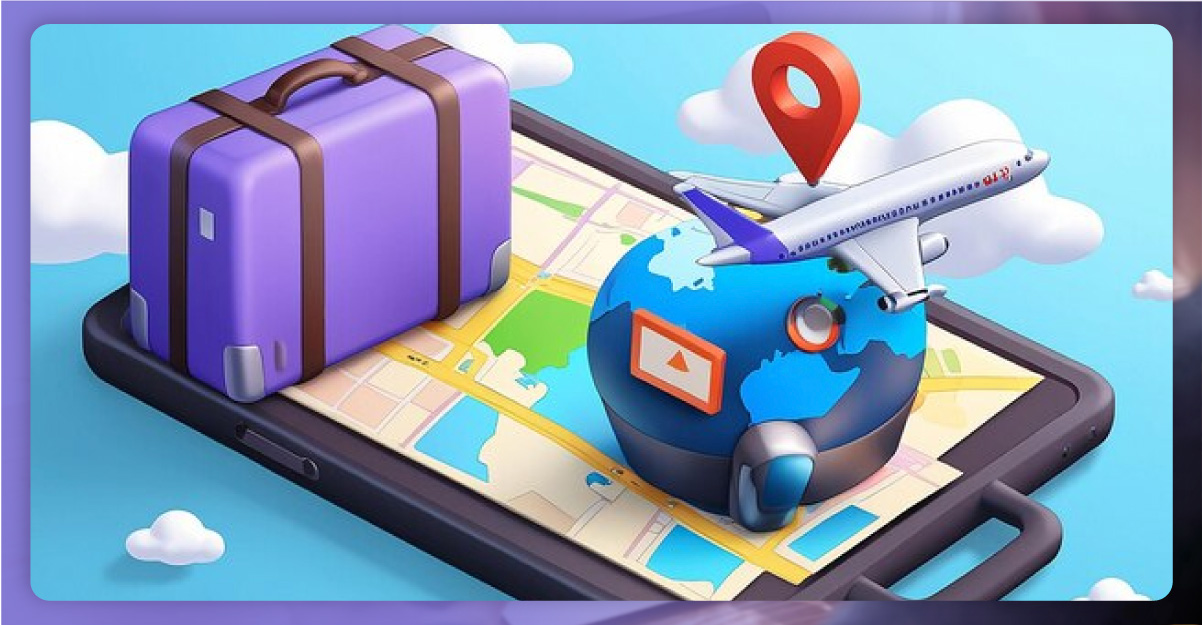
Mobile apps have become indispensable tools for modern travelers. From trip planning to real-time navigation, mobile applications offer a wide range of services that make travel more convenient. Many travel apps integrate AI-driven chatbots, which provide instant assistance for flight bookings, hotel reservations, and itinerary planning.
Additionally, mobile payment solutions have revolutionized the way tourists make transactions abroad. Digital wallets and contactless payments reduce the hassle of carrying cash or dealing with currency exchange, making international travel more seamless. Using Travel Data Scraping Services, app developers can continuously update their platforms with the latest travel insights, ensuring users have access to real-time prices, reviews, and availability data.
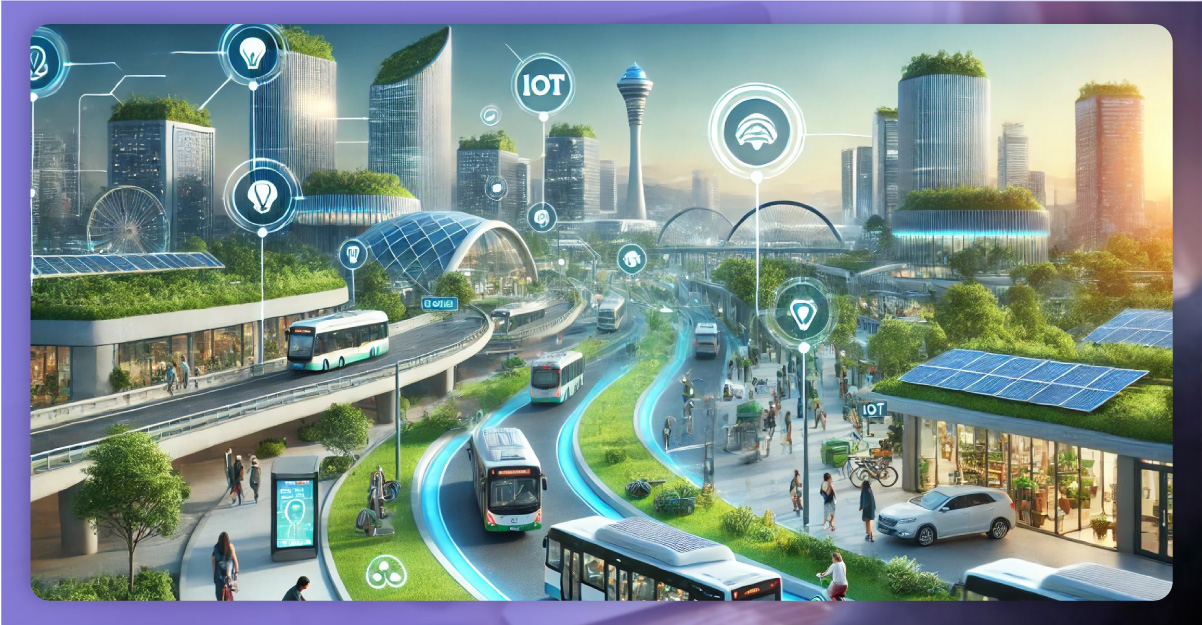
As sustainability becomes a growing concern in the travel industry, technology is crucial in promoting eco-friendly tourism. Many cities and travel providers are adopting innovative tourism initiatives that utilize data analytics, IoT sensors, and AI to reduce environmental impact. Smart cities integrate real-time traffic monitoring, energy-efficient accommodations, and sustainable transportation options to create a greener travel experience.
For instance, AI-powered travel apps can recommend eco-friendly hotels, sustainable dining options, and low-carbon footprint transportation methods. By analyzing Travel and Tourism Datasets, policymakers and travel companies can develop strategies to manage over-tourism, conserve natural resources, and enhance cultural heritage preservation.
Technology has revolutionized travel, making trips more seamless, customized, and enjoyable. Innovations like artificial intelligence, big data, augmented reality, and virtual reality are redefining the industry, enhancing everything from planning to on-the-go experiences. Advanced data analysis enables travelers to access real-time information, compare options, and make informed decisions, ensuring the best value and convenience. Meanwhile, businesses use these insights to improve services and streamline operations.
Automation has led to advancements in contactless check-ins, digital travel assistants, and personalized recommendations. As technology evolves, the tourism industry will see even more significant efficiency, sustainability, and customer engagement improvements. By embracing these innovations, travelers and businesses can enjoy a more connected and enriching journey.
Experience top-notch web scraping service and mobile app scraping solutions with iWeb Data Scraping. Our skilled team excels in extracting various data sets, including retail store locations and beyond. Connect with us today to learn how our customized services can address your unique project needs, delivering the highest efficiency and dependability for all your data requirements.